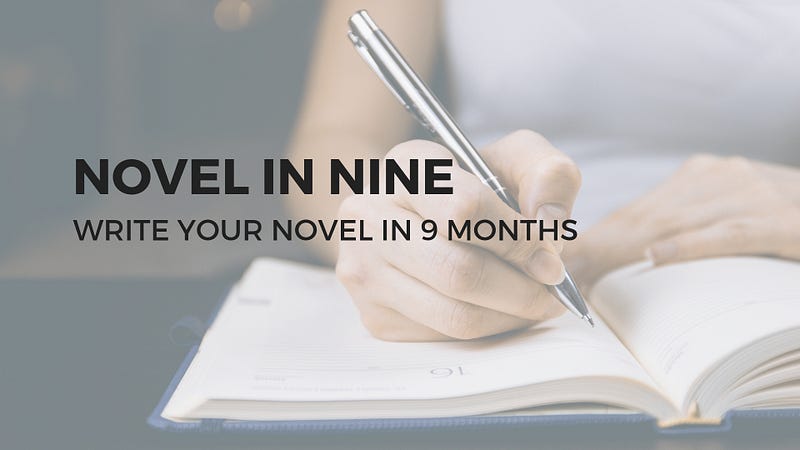 Here are some tips that we are certain to help you this year.
Here are some tips that we are certain to help you this year.
1. Forget the outline.
Outlines are fine unless they derail you. I’ve seen it again and again: writers who end up spinning their wheels for years, beholden to a failed outline. The nice thing about an outline is that it gives you a direction. The bad thing about an outline is that it limits your novel’s possibilities and may cause you to get hopelessly stuck. For the first fifty pages, at least, work without an outline. See where the story is beginning to take you.
2. Consider the setting.
Setting encompasses not only place, but also time. Where does your novel happen, and when? Ian McEwan’s chilling novella, The Comfort of Strangers, derives much of its tension from the setting of Venice — the convoluted streets and hidden alleys are essential to the feeling of disorientation that leads to the protagonist’s undoing. see only a few feet in front of you.
When you consider the setting of your novel, be as specific as possible. If it begins in a city, what part of the city? What street? What building? Why does the story happen here?
3. Consider the point of view.
Who is telling the story, from what distance? Do you have a first-person narrator who is at the center of the action, an omniscient narrator who is able to go into the thoughts of any character at any time, a limited third person narration that sticks closely to one character? Mersault engages the reader’s empathy in The Stranger, despite his seeming coldness, because the first-person narration brings the reader straight into Mersault’s mind. We understand his motivations from his own point of view, and, as a result, actions that might otherwise seem reprehensible begin to make sense to us.
4. Consider the protagonist.
There has to be someone at the center of the action. Generally, this will be someone your reader ends up rooting for, no matter how flawed the character may be. (And he or she must be flawed in order to be realistic.) Emma Bovary is deeply flawed, but in the end, we care what happens to her as she hurtles toward self-destruction. Flaubert isn’t easy on Emma, but he portrays her in all of her complexity — her ambition, her passion, her rapacious desire for status and luxury. Every great novel is character-driven; your protagonist must be a character worth caring about.
5. Embrace fragments.
Don’t be afraid to write a paragraph here, a page there. Not everything has to be a full-fledged chapter in the early stages of novel-writing. If you have a scene in your head that you know you want to write, go for it. But if you sit down at your computer and feel flustered and uncertain, allow yourself the freedom to think in small bits. Tell yourself, “Today I’m going to write 1200 words about where my character lives,” or “Today I’m going to write 500 words about what’s troubling the narrator,” or “Today I’m going to write the last paragraph of the novel.” That last one is kind of weird, right? But the point is, you don’t have to write in a linear fashion. You can piece your novel together later. For now, get some stuff on the page.
6. Consider the conflict.
No matter what kind of novel you’re writing, no matter the genre, there is no novel without trouble. Every story begins with conflict. What’s yours? In Gone Girl, a woman goes missing in the first chapter, and her husband appears to be implicated in her disappearance. In Here Is Where We Meet, a middle-aged man meets his dead mother along an aqueduct in Lisbon, and must come to terms not only with his own country’s past, but also with the mysterious nature of the uncertain boundaries between life and death: your novel must begin with trouble.
While you don’t necessarily have to include conflict in the first page of a novel, it doesn’t hurt. Make the reader understand, somewhere within the first 10 pages, why this story is being told.
7. Consider the stakes.
What is at risk in the story? What does your protagonist stand to lose or gain? What does he or she want, and why is it important? The stakes must be clear if you want the reader to care. Often, there will be more than one thing at stake, more than one big risk. Remember, your characters do not exist in a vacuum; their lives play out against a larger backdrop. They are part of the wider world.
8. Write what you don’t know.
The old adage is, “Write what you know.” But you also need to be willing to write what you don’t know. In the spirit of discovery, allow one character to work in a field about which you know very little, or allow some element of the plot, or a subplot, to delve into something you find unusual. Then research it. Sure, you could make your main character’s sister a struggling writer, something you presumably know a thing or two about, but that’s a little boring, isn’t it? Why not make her a welder instead? Then go online and research welding. Take a welder out for beer. Write five paragraphs that can be sprinkled throughout your novel that embrace the lingo and physicality of welding. Voila–you’ve created something interesting and textural, something that may just take you in an unusual metaphorical direction you never would have imagined if you were sticking to what you knew.

9. Set a deadline, but be realistic and kind.
Not for the completion of the novel, but for the first fifty pages. Set a second deadline, far enough in the future, for the completion of the second fifty pages. It’s great to tell yourself you’re going to write a novel in a month, but it can be very discouraging once you get to the end of the month and realize you’ve produced only 35 pages. 35 pages is great, unless you’ve set yourself up for failure by believing you would produce 300 in that amount of time. If you do choose to write a novel in 30 days, keep in mind that you’re writing a first draft. Be kind to yourself and set yourself up for success by setting realistic deadlines. If you write 2500 words per week, you can complete an 80,000 word novel in eight months (with time left at the end for revision).
10: Find a trusted reader (but don’t show it to everyone you know)
One of the biggest mistakes beginning writers make is showing their early efforts to anyone who will look. I know, it’s tempting. You’re writing a novel. You want feedback! You want support! You want someone to tell you it’s awesome. But hold your horses. If you let too many people see your novel too early, they’re going to have all sorts of ideas about where it should go and what it should be about, what you should include and what you should leave out.
Give yourself some time to get your own vision onto the page before other visions interject. Many novels are written by collaboration, but most are not written by committee. It’s your story; spend some quality alone time with it. Then, when you’re deep enough into the work to understand what you’re trying to do, online novel writing class or find a supportive writing group.
Make 2019 the year of your novel!
So you want to write a novel, but you don’t know how to get started. Or maybe you’ve tried writing a novel in the past and haven’t finished. Let our team here at D.L.M. help you get started. Contact us today.